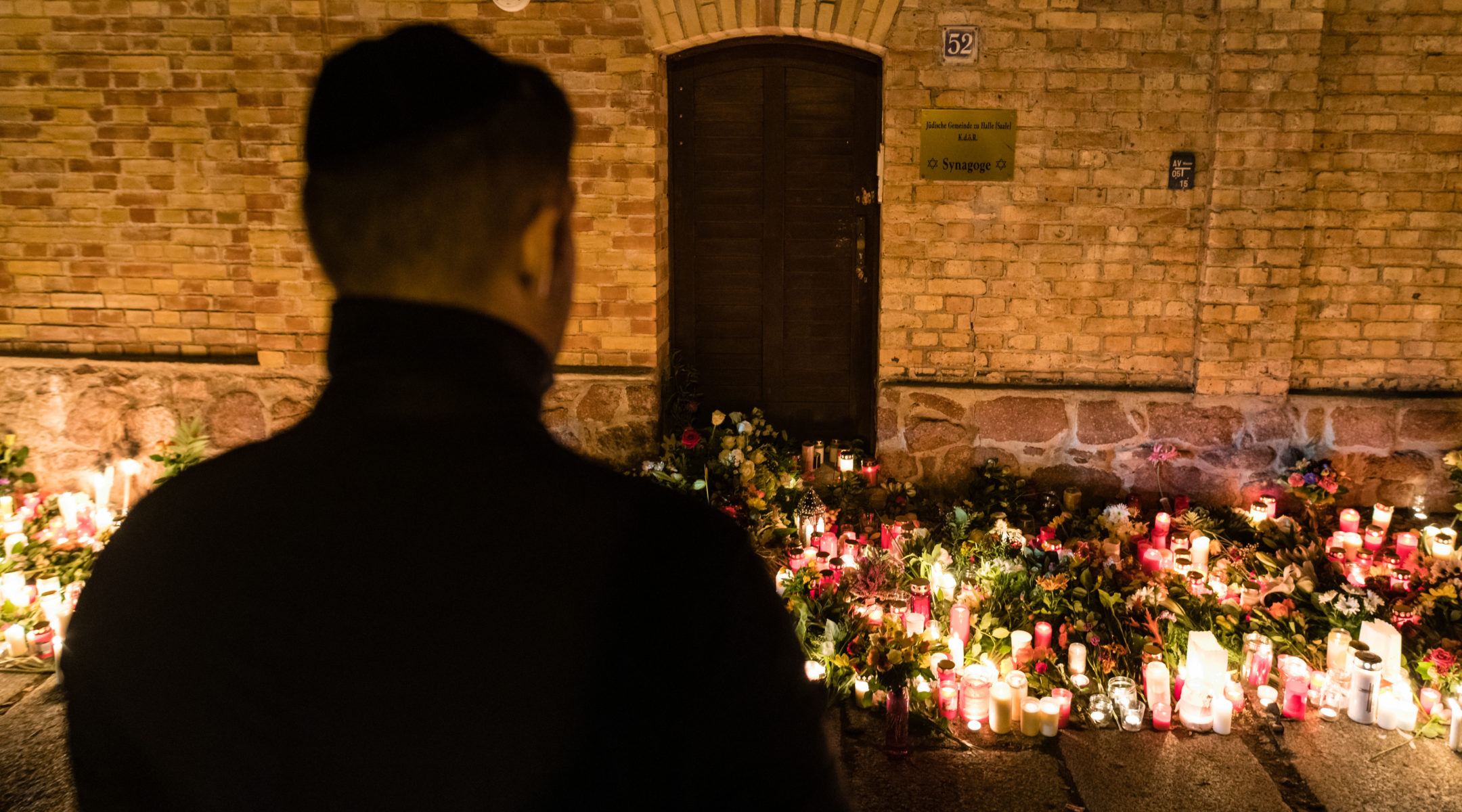BERLIN (JTA) — A new report from an anti-Semitism monitor in Germany found that reported incidents rose following the attack on a Halle synagogue last Yom Kippur.
“The public perception of the topic of anti-Semitism was strongly marked by the far-right terrorist attack on a synagogue in Halle on Yom Kippur,” the Federal Association of Departments for Research and Information on Anti-Semitism, or RIAS, wrote in releasing the report this week.
The report highlights 1,253 registered anti-Semitic incidents in 2019 across four federal states, including Berlin. The inclusion of reporting from Brandenburg, Schleswig-Holstein and Bavaria was added to the study this year. In the Halle attack, two people were killed near the synagogue when the alleged gunman could not enter the building.
A political background in far-right circles tended to be a theme of those who committed anti-Semitic attacks, especially in the northern state of Schleswig-Holstein, where far-right, anti-Semitic ideology is expressed openly. But the report also claims to show that anti-Semitism goes beyond political background.
RIAS looked at a variety of overlapping anti-Semitic motives in its reporting, including Anti-Semitic Othering, Anti-Judaism, Modern Anti-Semitism, Israel-Focused Anti-Semitism and Post-Shoah Anti-Semitism.
The largest motivation, post-Shoah anti-Semitism, accounted for 46% of incidents and refers typically to the Holocaust and various denials of Nazi Germany’s crimes.
The study also considers anti-Semitism in urban versus rural settings.
“In rural areas, for example, anti-Semitism linked with Israel plays less of a role,” Alexander Rasumny of RIAS said in an interview with Deutsche Welle. “It’s a phenomenon that tends to manifest itself more in urban areas.”
On Thursday, the day before the anniversary of the date in 1945 when Germany surrendered to the Allied Forces, the president of the Central Council of Jews in Germany sounded an alarm about the disappearing memory of the Holocaust, especially among young Germans.
“In their minds, World War II is as far away as the empire, there is no longer a reference point,” Josef Schuster said. “If about half of young people don’t know the term ‘Auschwitz,’ something’s wrong.”
JTA has documented Jewish history in real-time for over a century. Keep our journalism strong by joining us in supporting independent, award-winning reporting.






